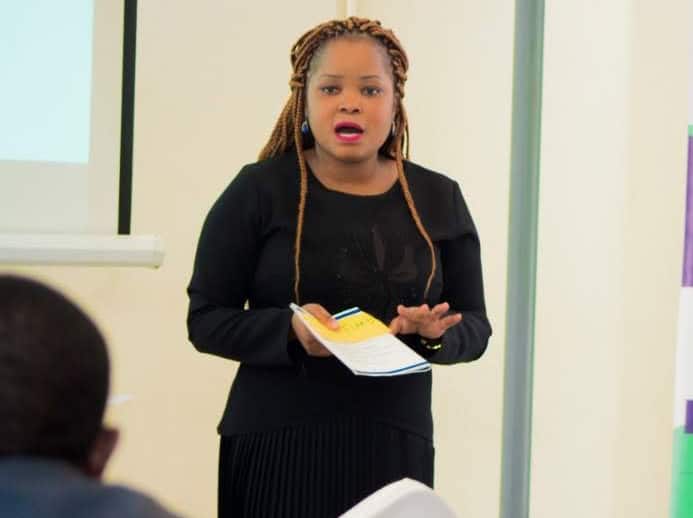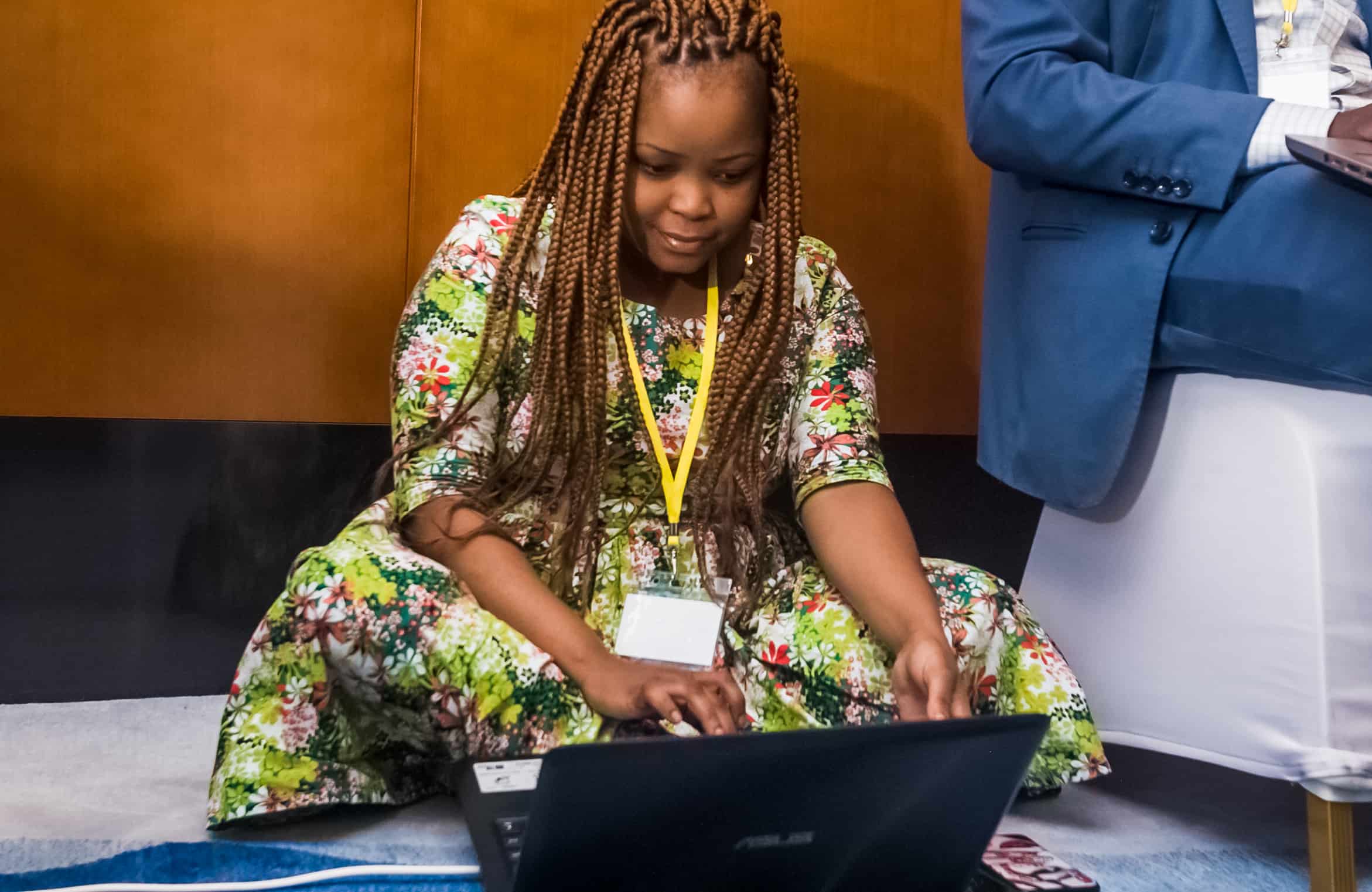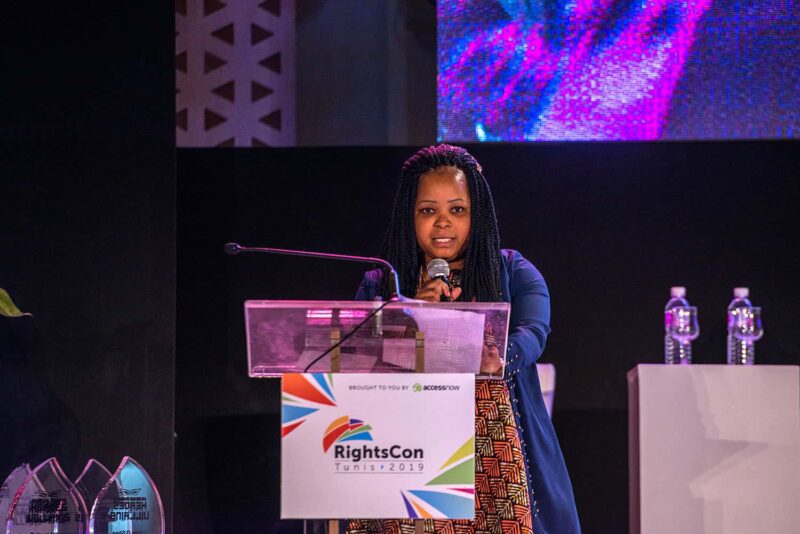Zaituni Njovu’s friend seemed to have everything to live for.
Smart, affluent and well-educated, she worked with Njovu at a bank in Dar es Salaam, Tanzania. But then an old boyfriend set out to ruin her reputation. He cobbled together suggestive photos of her into a video and posted it online. As the photos spread, so did the leering emails, the texts, the comments. Tragically, the harassment ultimately drove Njovu’s friend to end her own life.
If she were the only one, that would be tragic enough. But in Tanzania, in Africa, and around the world, the same tragedy plays out again and again. Women are twice as likely as men to be victims of online harassment, according to Amnesty International. And as women’s political participation surges, the epidemic of trolling, phishing, viruses, cyber-stalking, threats and scams puts in danger not only professional women like Njovu’s friend, but women politicians, activists, journalists and leaders. The pattern of online harassment is directly threatening women’s freedom of speech, expression, and political rights—particularly in places where women’s voices are most needed.

Women like Njovu are determined to battle back. Two years ago, at the age of 28, Njovu leveraged the knowledge she had gained from university degrees in technology and education into a vehicle to teach other women how to avoid being victimized by online harassment and cyberviolence. She created a nonprofit organization, the Zaina Foundation, to defend digital freedoms by empowering women across Tanzania in technology techniques, safeguards and security.
In the two years since, her small organization has trained thousands of women at civil society organizations, schools and universities to keep themselves safe online. She has translated key digital security tools—Signal, TOR and Umbrella among them—into Tanzania’s official language of Swahili, and she is working to further the reach of such tools in the multilingual nation. In a country where the education of women is secondary to that of men, where free speech is under attack and where women feel very much under threat, she is making a difference.
Njovu is among the first set of graduates of a fellowship program called Safe Sisters, founded by Internews and DefendDefenders in 2017, which trains women in East Africa to safeguard their privacy and protect their data online, and become trainers for their own communities. Since participating in the fellowship in 2018, Njovu has been recognized internationally for her work. In June, she was one of five recipients of the “Human Rights Heroes Award” presented by United Nations High Commissioner for Human Rights Michelle Bachelet at the RightsCon Summit in Tunisia, a vast conference on human rights in the digital age sponsored by international nonprofit AccessNow. Zaituni has also worked on Internews’ USABLE project, which builds feedback loops across the world, connecting digital security trainers working with at-risk communities, design experts, and open source tool developers.

“Violence against women online is, frankly, a problem all over world, but as women we often feel unqualified to learn about digital security. There should be a lot more opportunities for women and girls to feel empowered to learn how to protect themselves online,” said Haley Slafer, co-founder of Safe Sisters, and program manager for Global Technology Programs at Internews. “But for Zaituni, working with women and girls in rural communities in Tanzania, the challenges are just immense. She really took this on by herself in a place where women are particularly under threat. Now, people look to her as a leader on these issues in Tanzania and beyond.”
Njovu is an unlikely digital hero. Orphaned as a young child and raised in the small coastal village of Kichangani by her uncle, a coconut salesman, she grew up without electricity. Her parents had been professionals, but her uncle could barely afford food and clothing. She never even saw a computer until she was in middle school.
But while her uncle struggled to provide for the girls and for his own children, he encouraged Zaituni and her sister to study hard. By her account, she never let up. In middle school, Njovu says a volunteer teacher from Canada changed her life. Taking advantage of a few old computers available, he taught Njovu and other students how to use a computer keyboard, word processing programs, spreadsheets and even how to code. On the power of top marks and scholarships, Zaituni propelled herself all the way to university, securing a technology degree and a slew of awards.
After she graduated, Njovu was volunteering with an organization teaching high school students about environmental conservation when her email account was hacked. Hundreds of emails were sent out in her name asking for money from everyone in her contact list. Then the same thing happened again. And again. Depressed and disheartened, Njovu said she became determined to learn how to protect herself.
“I got into this because I am a woman and I was hacked. And I started to think about this, about the challenges women face online,” Njovu said. “I started to think, if it is this bad for me because I am a woman and I lack some skills, how bad must it be for others?”
The answer is, it’s not good for women online anywhere.
In 2017, Amnesty International polled 4,000 women in eight democratic, high-income countries, including the United States. More than 76 percent had experienced some form of abuse on social media platforms. Globally in Less Developed Countries, only one out of seven women is using the Internet compared with one out of five men, according to the International Telecommunications Union.
Women worldwide are twice as likely as men to fall victims to online harassment. Women politicians are judged more harshly than men online. A large percentage of communications with women online contain sexually abusive comments that are personally and professionally damaging. Harassments violate women’s freedom of speech, discourages them from seeking political office and block them from exercising their political rights.
In Tanzania, obstacles to digital literacy and security for women can seem overwhelmingly high. Many have never attended school. When women do use computers, they often work at insecure terminals shared by coworkers or at internet cafes. Targeting of women is particularly effective in many areas of East Africa, where men monopolize public and private positions of power.
Njovu’s organization is focused on technology and security training and stays out of politics. And the impact of her work is spreading.
In Uganda, Helen Nyinakiiza, who helped to establish the Safe Sisters program, and was the digital security trainer for Zaituni’s fellowship with Natasha Mzonza, calls Njovu “a shining star.”
“She has really worked to earn the respect of people in the digital security community and to break down barriers to digital security concepts in her country. That’s so important,” said Nyinakiiza. “The culture that we have in this region is that all women should be one way, and men another. That leaves women seriously victimized. We are seeing women having to move, to leave their jobs because of the online threats. It’s at the point where we cannot ignore it.”
Read more about the Safe Sisters project and see the Safe Sisters toolkit guide created in East Africa.
